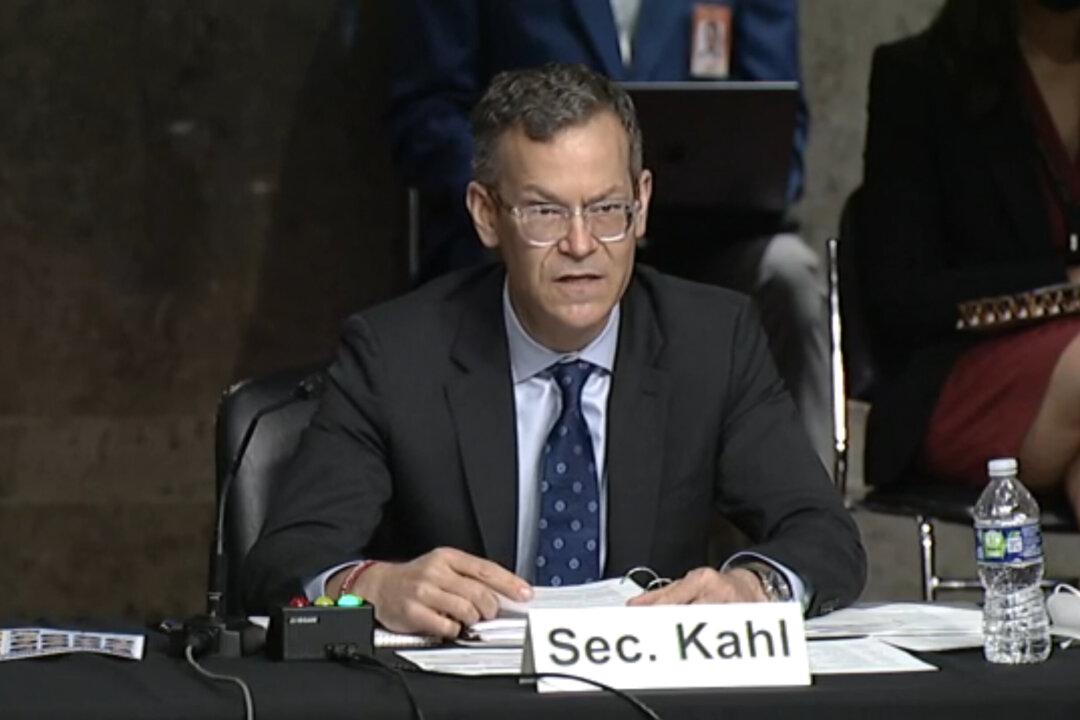ISIS-K, the branch of the ISIS terrorist group that’s active in Afghanistan, could be capable of launching international attacks in as soon as six to 12 months, according to a top Pentagon official.
In testimony to the Senate Armed Services Committee on Oct. 26, Defense Department Undersecretary for Policy Colin Kahl said that ISIS-K and the al-Qaeda terrorist group both want to carry out international attacks, but currently don’t have the capability to do so at present.




